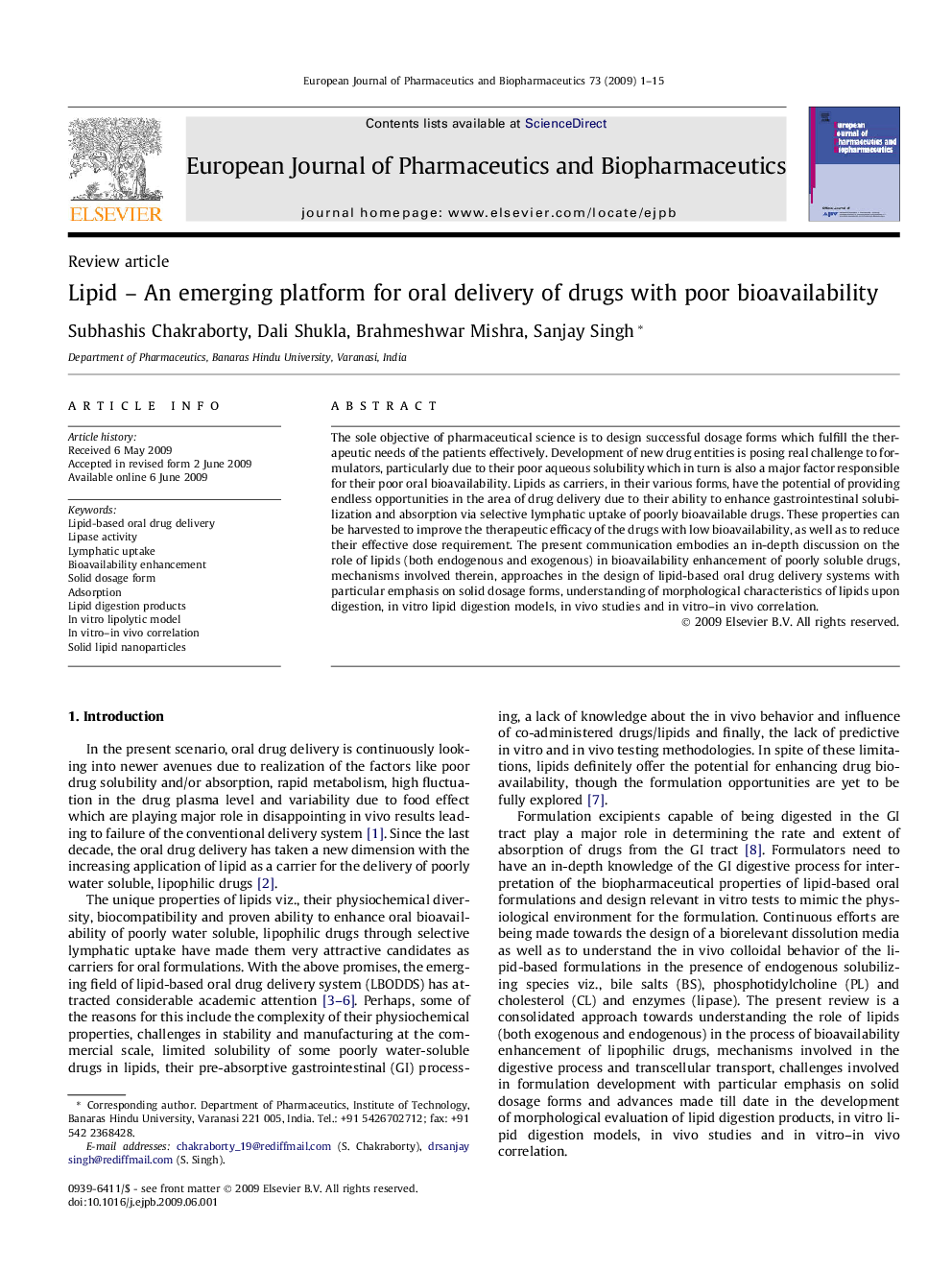| Article ID | Journal | Published Year | Pages | File Type |
|---|---|---|---|---|
| 2085583 | European Journal of Pharmaceutics and Biopharmaceutics | 2009 | 15 Pages |
The sole objective of pharmaceutical science is to design successful dosage forms which fulfill the therapeutic needs of the patients effectively. Development of new drug entities is posing real challenge to formulators, particularly due to their poor aqueous solubility which in turn is also a major factor responsible for their poor oral bioavailability. Lipids as carriers, in their various forms, have the potential of providing endless opportunities in the area of drug delivery due to their ability to enhance gastrointestinal solubilization and absorption via selective lymphatic uptake of poorly bioavailable drugs. These properties can be harvested to improve the therapeutic efficacy of the drugs with low bioavailability, as well as to reduce their effective dose requirement. The present communication embodies an in-depth discussion on the role of lipids (both endogenous and exogenous) in bioavailability enhancement of poorly soluble drugs, mechanisms involved therein, approaches in the design of lipid-based oral drug delivery systems with particular emphasis on solid dosage forms, understanding of morphological characteristics of lipids upon digestion, in vitro lipid digestion models, in vivo studies and in vitro–in vivo correlation.
